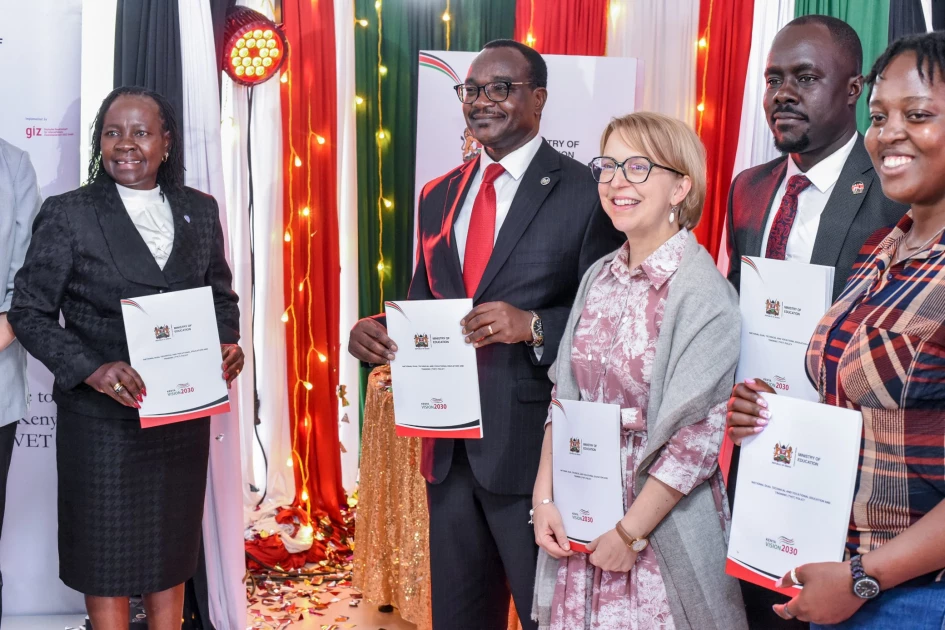Kenya launches National Dual Training Policy to transform TVET, boost youth employability

Launch of the Dual Training Policy at the Kiambu National Polytechnic.

Audio By Vocalize
The new policy establishes a structured framework for integrating classroom instruction with hands-on industry experience, ensuring graduates acquire both theoretical knowledge and practical skills aligned with market demands.
Developed by the Ministry of Education through the State Department for Technical and Vocational Education and Training (TVET), the policy positions Kenya as a leader in modern, demand-driven skills development in Africa.
Speaking during the launch at the Kiambu National Polytechnic, Education Cabinet Secretary Julius Migos Ogamba hailed the policy as a decisive step toward building a globally competitive workforce.
“Kenya is investing in a future where every young person has the skills and confidence to thrive in the job market. Dual Training brings classrooms and industry together, making training more relevant, practical, and future-focused,” said the CS. “With this policy, we are ensuring that our youth learn in real workplaces, use modern tools, and graduate ready for employment or entrepreneurship. This is how nations grow, and Kenya is ready.”
The Dual Training Policy provides guidance for institutions, employers, and trainers to deliver structured work-based learning, strengthen quality standards, and promote sustainable skills development aligned with industry needs.
Its development was supported by the Promotion of Youth Employment and Vocational Training Programme, jointly financed by the Governments of Finland and Germany, with technical cooperation from the Deutsche Gesellschaft für Internationale Zusammenarbeit (GIZ). The policy was formally approved by the Cabinet on 21 January 2025, paving the way for nationwide implementation.
Currently, more than 10,000 trainees are enrolled in Dual Training programmes across 100 TVET institutions and 93 vocations, supported by over 1,500 industry partners.
Finland’s Ambassador to Kenya, Ms. Riina-Riikka Heikka, commended the country’s strong commitment to education, youth employment, and innovation.
“Finland is proud to walk this journey with Kenya. Quality skills are the foundation of innovation, competitiveness, and resilience. This policy sends a powerful message — that Kenya is building a TVET system that listens to industry, empowers young people, and embraces green and digital transformation,” she said.
Germany’s Deputy Head of Development Cooperation, Friederike Hemker, reaffirmed Germany’s support for Kenya’s vision of a skilled and productive workforce.
“Germany strongly supports Kenya’s vision for a skilled workforce powered by meaningful partnerships between training centres and employers. This policy will scale success across the country and strengthen Kenya’s competitiveness,” Hemker noted.


Leave a Comment